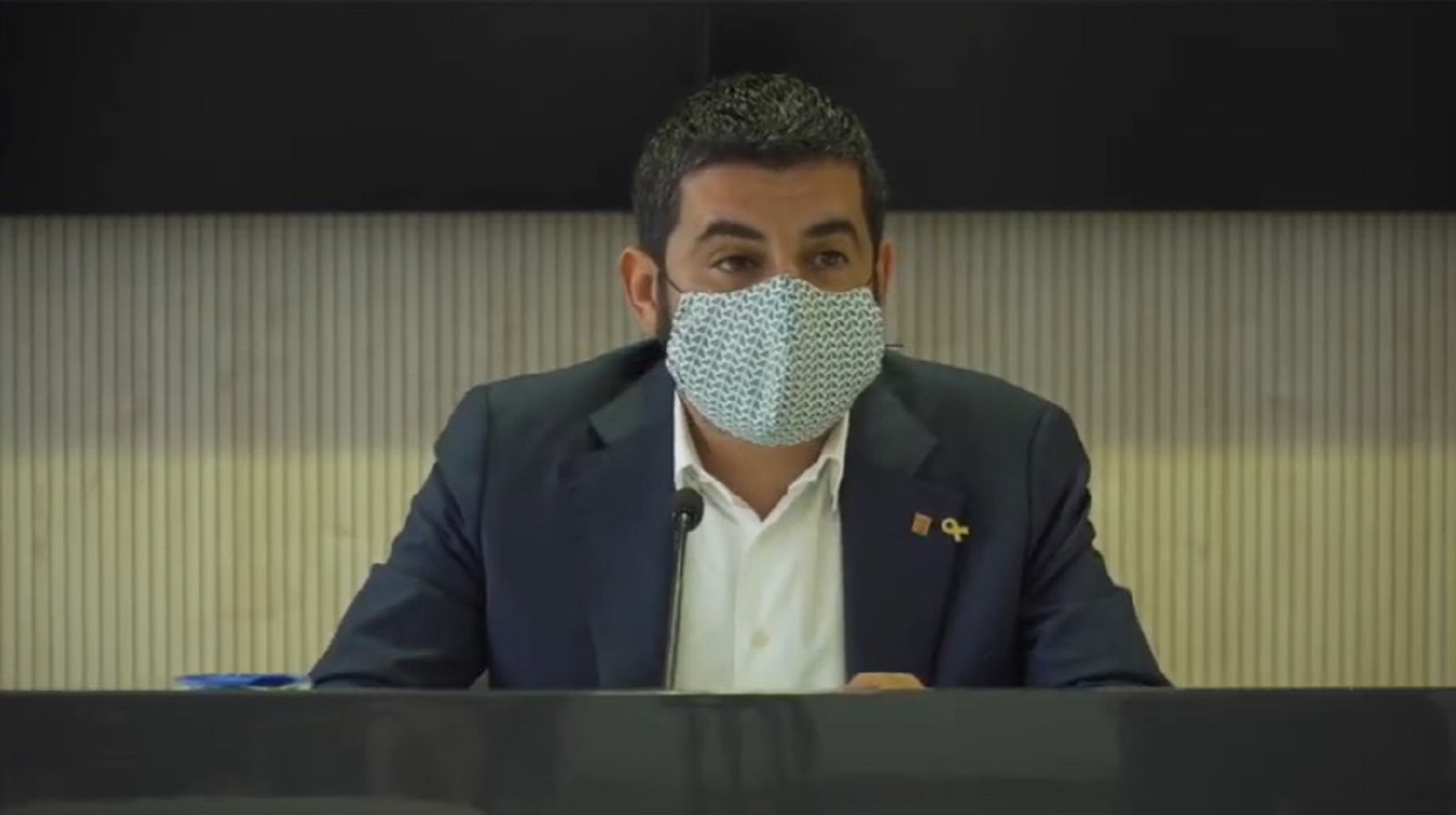The Catalan government has launched an assistance scheme aimed at providing financial help for families whose children may be required to stay home in a hypothetical Covid-19 quarantine. The plan comes in reaction to the Spanish executive's initatives in the area, which Catalan employment and social affairs minister Chakir el Homrani responded to critically today.
El Homrani explained that the Spanish government measures, contained in the so-called Me Cuida plan, require the parent or relative who has the lowest salary to be the one who takes care of a son or daughter in a quarantine situation. And this, as the minister pointed out, contributes to "widening the wage gap, because women continue to be the lowest paid". In addition, it is the company that approves or refuses the care leave for the parent affected, and in such situations "immediate isolation" is needed. Due to these and other circumstances - such as not taking into account single-parent families - the Catalan government has launched its complementary support.
Accordingly, a fund of 10 million euros has been allocated for families in socially-vulnerable or economically-precarious situations who are unable to resolve their situation currently, as well as those with intermittent or short-term contracts, as well as other situations. All this translates into grants of 300 euros when a family is affected by a quarantine. This first endowment is expected to reach 33,000 Catalan families. A joint press conference held today by the Catalan employment, education and health ministries gave the message that the government "will not to turn its back on Catalan society", although the ministers noted that the powers and the purse-strings in this area are held by the Pedro Sánchez government, and demanded the Spanish authorities must not ignore "the challenge that they have."
For her part, the Catalan health minister Alba Vergés asserted that it was important for quarantines to be observed, but also made a call to "guarantee the rights of children" and for an end to the "fear" experienced by parents who believe they may lose their jobs if they ask for leave. The proposal of the Catalan government is to apply the same criteria to parents in this situation as to those who have been affected by perimeter lockdowns, and the ministers called for a series of bureaucratic reforms which they will communicate to Spanish government departments to simplify the procedures involved.
Education minister Josep Bargalló mentioned an additional aspect affecting socially-vulnerable families: in a hypothetical perimetral-lockdown of a neighbourhood, schools may be closed for in-person classes; however, they will still serve "social and community functions" and thus, school dining rooms not directly affected by outbreaks will remain in operation and will provide necessary meal services.
The Catalan government is putting the focus of its supplementary assistance plans on the least protected families, but the ministers say they are "very aware" that the effects could reach 3.5 million active workers in Catalonia. "If the state can't assume the responsibilities for the administrative problems," said Alba Vergés, it should "transfer the resources and powers" to those who can.

